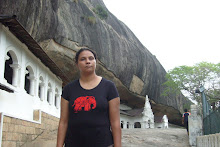http://www.zmag.org/znet/viewArticle/3901
On April 27th, two days after a terrorist bombing that killed 21 at the Egyptian resort of Dahab, thousands of Egyptian riot police turned downtown Cairo into military zone, beating and arresting peaceful protesters. The protesters were supporting two Egyptian Judges, Mahmoud Mekki and Hesham Bastawisi, leading critics of Egyptian police intervention in last year's parliamentary elections. The two judges have been threatened with disciplinary action for raising accusations of government election fraud.
Joe Stork, Deputy Director for Middle East and North Africa at Human Rights Watch, commented, "Deploying thousands of police to smother these protests shows all too clearly that President Mubarak has zero tolerance for peaceful dissent. This is a government that intimidates voters to obtain the parliamentary majority it needs to renew an Emergency Law, which it then uses to silence those who protest election fraud."
On April 27th, two days after a terrorist bombing that killed 21 at the Egyptian resort of Dahab, thousands of Egyptian riot police turned downtown Cairo into military zone, beating and arresting peaceful protesters. The protesters were supporting two Egyptian Judges, Mahmoud Mekki and Hesham Bastawisi, leading critics of Egyptian police intervention in last year's parliamentary elections. The two judges have been threatened with disciplinary action for raising accusations of government election fraud.
On April 26, Egyptian plain clothes police officers forcibly broke up a solidarity camp organized by Egyptian opposition groups in support of a sit-in by other judges, and arrested tens of activists. Two days earlier, police attacked the camp in the early morning, beating a judge and dragging him across the street because he was videotaping their attack on the protesters. So far, Egyptian police have detained at least 42 activists from different opposition groups on false charges.
The September 11 terrorist attacks demonstrated the failure of a longstanding US assumption - that autocratic, pro-American governments, like Saudi Arabia Egypt US
Unfortunately, American pressure on Egypt greatly diminished after the Muslim Brotherhood made gains in Egypt's November Parliamentary elections and Hamas won the elections in the Occupied Palestinian Territories in January. The Egyptian government has taken the opportunity to crush opposition political parties, even liberal, secular parties like Al Ghad and Al Wafd.
President Mubarak promised political reform and to abolish Egypt's Emergency Law during his campaign for re-election last year. But, capitalizing on the April 25 terrorist attack in Dahab, on April 30th the government extended the controversial Emergency Law which give the security forces broad powers to arrest and detain people without charge. Parliament, still dominated by Mubarak's National Democratic Party, agreed to a two year extension. The Egyptian government claims the Emergency Law has been used to fight terrorism, but opposition groups say the law failed to combat terrorism and was used to violate the rights of Egyptians.
Joe Stork, Deputy Director for Middle East and North Africa at Human Rights Watch, commented, "Deploying thousands of police to smother these protests shows all too clearly that President Mubarak has zero tolerance for peaceful dissent. This is a government that intimidates voters to obtain the parliamentary majority it needs to renew an Emergency Law, which it then uses to silence those who protest election fraud."
More injustice won't end terrorism. Most youths who committed terrorist attacks in Egypt US
Dictatorial governments, not just in Egypt Middle East countries, have created terrorism. Many activists have been detained, tortured and sometimes even raped after trying to gain their freedom and rights using nonviolent methods. Many youth joined Islamic terrorist groups because of government persecution and injustice. Islamic groups convince them that the Egyptian government is led by "unbelievers", and that to gain freedom and justice, they must use violent methods, without concern for innocent civilians.
As long as dictatorial governments deny freedom of expression, and economic and political rights, and arrest nonviolent activists, terrorism will flourish and we will all suffer. I oppose violence and terrorism, but I realize that some victims of injustice become terrorists, acting like their former persecutors.
We all want to live in peace. To do so we have to address the reasons behind terrorism, not through emergency laws or unjust procedures, but through democracy and respect for the human rights of all people throughout the world.


ليست هناك تعليقات:
إرسال تعليق